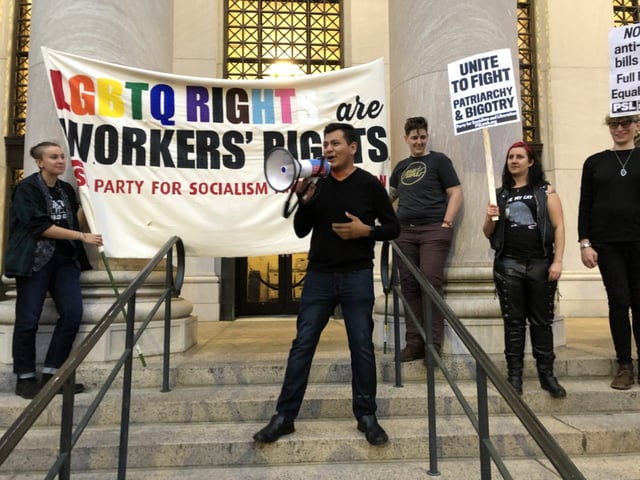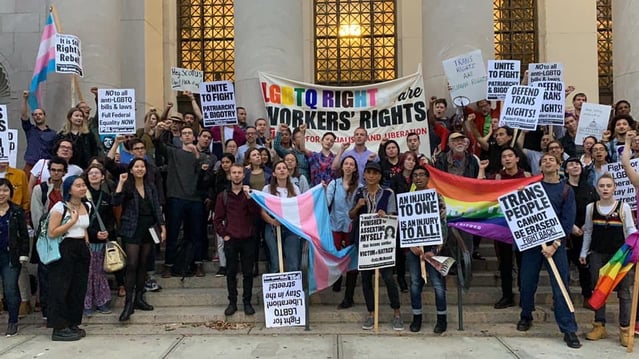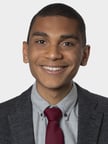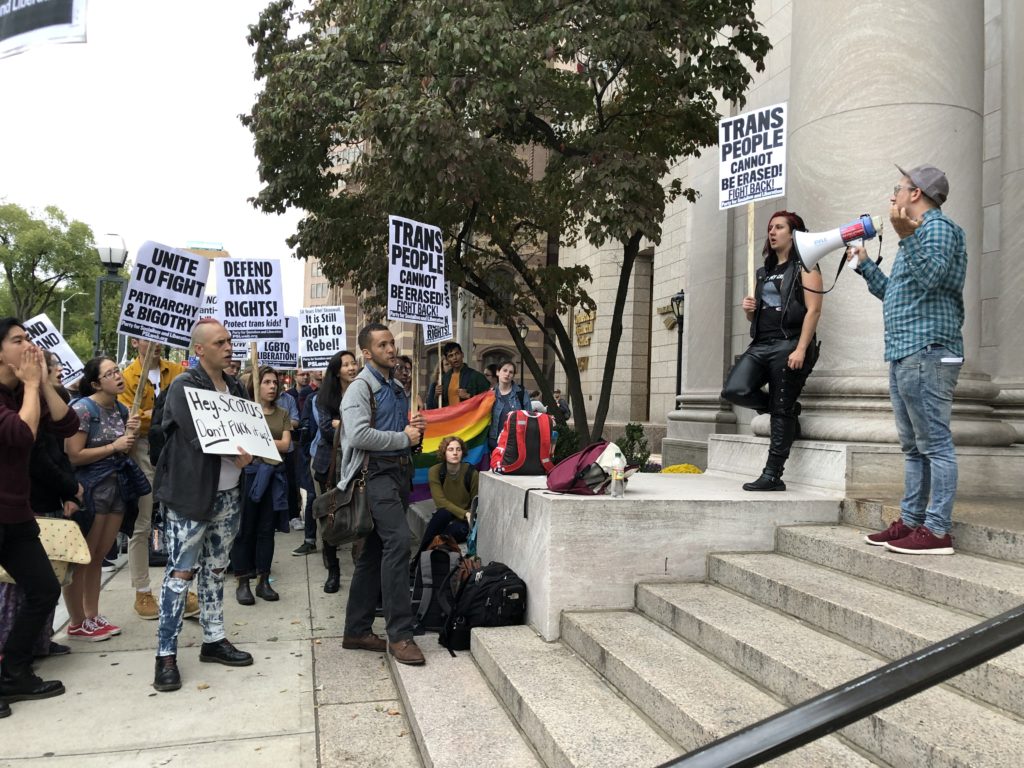On October 7th, the country eagerly awaited oral argument in the Supreme Court case Harris Funeral Home v. EEOC. Along with two other cases, Harris Funeral Home was to decide whether employment discrimination based on sexual orientation or transgender status would be protected under Title VII of the Civil Rights Act. And regardless of the outcome, it was clear that the oral arguments and eventual decision were to be watershed moments for the LGBTQ+ justice movement.
While the country waited, OutLaws (Yale Law School’s LGBTQ+ affinity group) were hand in hand protesting outside of New Haven’s federal courthouse, all chanting a common refrain – “LGBTQ+ rights are workers’ rights!” We stood there with optimism in the crisp fall night, hopeful that our words and solidarity could make a difference. But the local organizers from the New Haven Pride Center closed the event with a sobering reminder: No matter what happens in this case, the courts won’t save us.
It was hard to disagree with them. Even with landmark LGBTQ+ rights cases like Obergefell & Hively v. Ivy Tech Community College that have expanded LGBTQ+ protections in recent years, there have been countless other ways in which the courts have continued to fail to protect queer folks, be it from discrimination, violence, or hatred. In a year when Anti-LGBT hate crimes have been on the rise and Trump substantially rolled back Trans rights in the federal government, New York ended their ban on conversion therapy, fearful that continuing to uphold it could precipitate a lawsuit setting bad precedent and protecting the practice nationwide. As the federal and Supreme courts continue to become entrenched in their hands of conservative jurists, this situation is only likely to get worse.

This state of affairs seemed completely at odds with what we were learning in the classroom. At Yale and across the country, the first-year legal curriculum focuses almost exclusively on federal and supreme court jurisprudence, often at the expense of ways that lawyers can support community-led movements for social change. Students that want to learn about how to use their training to build power within communities, rather than working within conservative institutions, often have to do so on their own.
Point, however, has given me the opportunity to learn about and engage at the intersection of law and activism, both on my own and in solidarity with others. For my community service project last semester, I worked with a team of law students on a project supporting community-led campaigns against transphobic legislation in North Carolina. Along the way, we coordinated with Law for Black Lives, a community of POC legal advocates trained in movement lawyering, and learned about their models for promoting social change. This semester, I’m taking what I’ve learned from this experience and helping to coordinate a reading group on Movement Lawyering, talking with professors around the country about what can be done to change the way lawyers think about contributing to social change. Over the summer, I’ll be working in South Africa with organizers and community lawyers to attack the disproportionately applied vagrancy laws that have perpetuated post-Apartheid racial disparities across the region.

Through it all, I’ve been excited to see how my thinking and career goals have changed over time, and am hopeful that these experiences can help inform my future work in criminal legal reform. Whether Harris Funeral Home comes out the right way, there certainly will be much more work to do to advance the movement for LGBTQ+ justice in years to come. And though the courts might not save us, I’m more hopeful now than ever that lawyers can be a part of the solution.
 This post was written by FedEx Point Scholar Andrew Ntim.
This post was written by FedEx Point Scholar Andrew Ntim.
Andrew is currently studying Law at Yale Law School. Following law school, Andrew hopes to use impact litigation to help end the mass criminalization of queer, black, and brown bodies, and help build movements for LGBTQIA+, economic, and racial justice in the criminal justice reform space. Read more about Andrew here.

